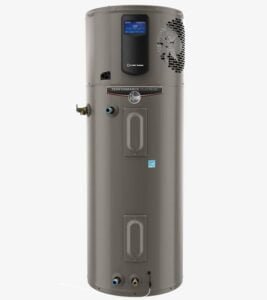How to Choose the Right Water Heater for Your Home in 2024
How to Choose the Right Water Heater for Your Home in 2024
Introduction to Choosing the Right Water Heater for Your Home
Welcome to the ultimate guide on selecting the right water heater for your home! In the realm of household comfort and efficiency, choosing the perfect water heater is paramount. Picture waking up to a soothing hot shower or effortlessly running your dishwasher without fretting over lukewarm water – this guide will help you turn those visions into reality.
Different Types of Water Heaters
Understanding your household’s hot water needs is the foundational step in your journey to select the right water heater for your home. From assessing usage patterns to evaluating installation space, we’ll navigate through every aspect together. As we delve into the diverse types of water heaters available, you’ll discover the intricacies of traditional tank heaters, the space-saving marvels of tankless options, the space-saving marvels of tankless options, the eco-conscious appeal of heat pump systems, and the sustainable brilliance of solar heaters.
Energy efficiency, maintenance costs, water quality considerations, and safety features are just a few of the critical factors we’ll explore along the way. By the end of this comprehensive guide, you’ll possess the knowledge and confidence needed to make an informed decision—one that aligns perfectly with your household’s needs, values, and aspirations.
Let’s embark on this enlightening journey to find the ideal water heater that promises not just comfort but also sustainability and peace of mind for years to come. Whether you’re planning a new water heater installation or considering an upgrade, this guide will equip you with the insights to make the best choice for your home.
1. Understanding Your Water Heater Requirements:
Assessing Your Household’s Hot Water Needs
To select the right water heater, understanding your household’s hot water consumption is paramount. Begin by closely observing your family’s daily routines and habits. Take note of activities requiring hot water, such as showers, laundry, and dishwashing, and the frequency of their occurrence.
Peak usage times, typically in the mornings and evenings, are crucial. During these periods, multiple hot water appliances may be in simultaneous use, significantly impacting your hot water demand. By identifying these peak times, you can accurately estimate the maximum hot water capacity required to meet your family’s needs.
Furthermore, anticipate any future changes in your household, such as the addition of guests or changes in family size. When assessing your requirements, consider these factors that can influence your hot water consumption patterns.
By understanding your hot water needs comprehensively, you can choose a water heater with the appropriate capacity and performance to meet your requirements efficiently without overspending on unnecessary features.

Evaluating Space and Installation Requirements
Before selecting a water heater, evaluate the available space in your home for installation. Traditional tank-style water heaters require ample space for the tank and proper ventilation. Measure the designated area carefully to ensure compatibility with the chosen water heater model.
Alternatively, consider the space-saving advantages of tankless water heaters, which mount directly on the wall and require minimal space. Tankless heaters offer flexibility in installation, allowing you to place them closer to the point of use, reducing heat loss through piping and ensuring prompt hot water delivery.
Evaluate your home’s plumbing system to determine compatibility with different water heater types. Consider any necessary modifications or upgrades required for installation, such as venting or electrical connections.
Assessing your space and installation requirements ensures that you choose a water heater that not only meets your hot water needs but also integrates seamlessly into your home’s infrastructure, maximizing efficiency and convenience while minimizing installation challenges and costs.
2. Types of Water Heaters:
Before purchasing a water heater, it’s essential to understand the various types available, including traditional tank water heaters, tankless (on-demand) water heaters, heat pump water heaters, and solar water heaters. Here, we provide information on these types to help you select the right size and fuel source for your home.

Traditional Tank Water Heaters
Traditional tank water heaters are the familiar fixtures found in many homes, storing hot water in a reservoir for immediate use. These heaters are known for their cost-effectiveness, offering a more affordable upfront investment compared to other types. The price of traditional tank water heaters varies depending on the tank size and efficiency, allowing homeowners to choose a model that fits their budget and needs.
When selecting a traditional water heater, it’s essential to consider factors such as tank size, insulation quality, and recovery rate. The tank size determines the amount of hot water available at any given time, while proper insulation reduces heat loss and improves overall efficiency. Additionally, the recovery rate is a crucial factor, indicating how quickly the tank can replenish hot water after it has been depleted. It ensures a consistent supply during peak usage times, which is essential for households with moderate to high hot water demands.
With their reliable performance and proper maintenance, traditional water heaters remain popular for many homeowners. They strike a balance between affordability and functionality, making them a practical option for those looking to meet their hot water needs without a significant initial investment.
Tankless (On-demand) Water Heaters
Tankless water heaters offer a space-saving and energy-efficient alternative to traditional tank heaters. These units heat water on demand as it flows through the unit, eliminating the need for a storage tank. One of the standout features of tankless water heaters is their longevity. They often have a longer lifespan compared to traditional models, lasting up to 20 years with proper maintenance. This durability makes them a wise investment for homeowners looking for long-term solutions.

?
Tankless heaters provide a continuous supply of hot water, making them ideal for households with limited space or those aiming to reduce energy consumption and utility bills. When choosing a tankless water heater, it’s essential to consider factors such as flow rate and temperature rise capabilities. These factors ensure the unit can meet your household’s hot water demands efficiently.
With their compact design and instant heating capabilities, tankless water heaters not only offer convenience and efficiency but also a long-term, reliable solution for modern homes. Their ability to provide hot water on demand, coupled with a longer lifespan, makes them an increasingly popular choice for homeowners.
The one major consideration before installing a tankless water heater is the electrical power requirements. Unlike a traditional natural gas tank style water heater, most natural gas tankless water heaters require some level of electric service to operate so you will need an electrical supply at the location. In addition, an all-electric tankless water heater typically require a 240 volt 50 to 120 amp circuit which is much greater than a typical electric tank style water heater. Homeowners should take into consideration the cost of installing or upgrading the necessary electrical service before deciding on a tankless water heater.
Heat Pump Water Heaters
Heat pump water heaters utilize innovative technology to extract heat from the surrounding air and transfer it to the water stored in the tank. These systems are typically powered by electricity, making them a suitable option for homes with access to electrical power sources. They are highly energy-efficient and can significantly reduce energy costs over time, especially in regions with moderate climates where their efficiency is maximized.

When considering a heat pump water heater, it’s essential to evaluate the location and ambient temperature conditions to ensure optimal performance. These heaters operate most efficiently in areas with consistent air temperatures, as they rely on extracting heat from the environment. Therefore, they are an excellent choice for areas that do not experience extreme cold temperatures.
Heat pump water heaters may require adequate space for installation, as they need room to effectively draw in and expel air. By harnessing ambient heat, these water heaters offer sustainable hot water solutions while minimizing environmental impact and operating costs. Their reliance on electricity as an energy source and their optimal performance in moderate climates make them a forward-thinking choice for environmentally conscious homeowners.
Heat pump water heaters can be an excellent energy-efficient choice in regions with moderate climates
Solar Water Heaters
Solar water heaters harness the power of sunlight to heat water, offering an eco-friendly and cost-effective alternative to traditional heating methods. One of the most significant benefits of these systems is their minimal environmental impact. By utilizing renewable solar energy, solar water heaters significantly reduce the carbon footprint, making them an excellent choice for eco-conscious consumers who are looking to make a positive environmental impact.

These systems typically consist of solar collectors, which absorb sunlight and transfer heat to a fluid circulating through the system. Solar water heaters are ideal for homes with access to ample sunlight and can significantly reduce reliance on conventional energy sources. It contributes to environmental consumption and offers long-term savings on utility bills.
Before investing in a solar water heating system, it’s essential to assess your home’s solar access and climate suitability to ensure optimal performance. While the initial costs of installation may be higher compared to traditional heaters, the long-term benefits, both financially and environmentally, are substantial. With advancements in technology and increased environmental awareness, solar water heaters are becoming increasingly popular as sustainable heating solutions for homes worldwide, offering a practical way to harness natural resources while reducing energy costs and environmental impact.
Solar water heaters can be an excellent option in climates with an abundance of sunny days and the appropriate place to locate the system.
3. Factors to Consider When Selecting a Water Heater:
Energy Efficiency Ratings
When selecting a water heater, prioritize models with high energy efficiency ratings to minimize both utility costs and environmental impact. Look for Energy Star certification and compare the energy factor (EF) of different models to ensure optimal efficiency and savings over time. By investing in an energy-efficient water heater, you can enjoy long-term benefits while reducing your carbon footprint.
Installation and Maintenance Costs
When considering the costs associated with water heaters, it’s essential to not only look at the initial purchase price but also the installation and maintenance expenses. The complexity of installation varies by type. For instance, tankless and solar water heaters often require professional installation, which can add to the initial costs. However, their long-term energy savings can offset these upfront expenses. Additionally, consider the maintenance requirements of each type of water heater, as regular maintenance can extend the lifespan of the unit and ensure efficient operation.
Water Quality and Corrosion Resistance
Another critical factor to consider is the quality of water in your area and how it may affect your water heater. In regions with hard water, it’s crucial to choose a water heater with enhanced corrosion resistance. Hard water can lead to sediment buildup and corrosion, which can significantly reduce the efficiency and lifespan of the heater. Some models are specifically designed to withstand such conditions, and implementing water treatment solutions can also help in preventing premature wear and maintaining the efficiency of your water heater.
Regional Considerations
Regional factors can also influence The effectiveness of a water heater. For example, the efficiency of heat pump water heaters is higher in moderate climates, while solar water heaters require sufficient sunlight exposure to be effective. Understanding these regional considerations can help you choose a water heater that operates optimally in your specific environment.
Conclusion
Selecting the ideal water heater for your home demands a thorough assessment of your hot water requirements, space availability, and financial parameters. By delving into the features and advantages of various water heater types, you empower yourself to make a well-informed choice tailored to your lifestyle and preferences. Always prioritize energy efficiency, durability, and safety in your selection process to ensure enduring comfort and substantial savings over time.
As you embark on this journey, remember that investing in the right water heater is not just about immediate convenience but also about securing long-term benefits for your household. Embrace the opportunity to reduce your environmental footprint while enhancing your quality of life.
Before finalizing your decision, consider exploring user reviews and experiences. These can provide valuable insights into the performance and reliability of different water heaters over time, helping you gauge real-world satisfaction and potential issues. Such firsthand information can be instrumental in guiding your choice.
How to Choose the Right Water Heater for Your Home in 2024 | OutFactors – Dallas Fort Worth, TX





